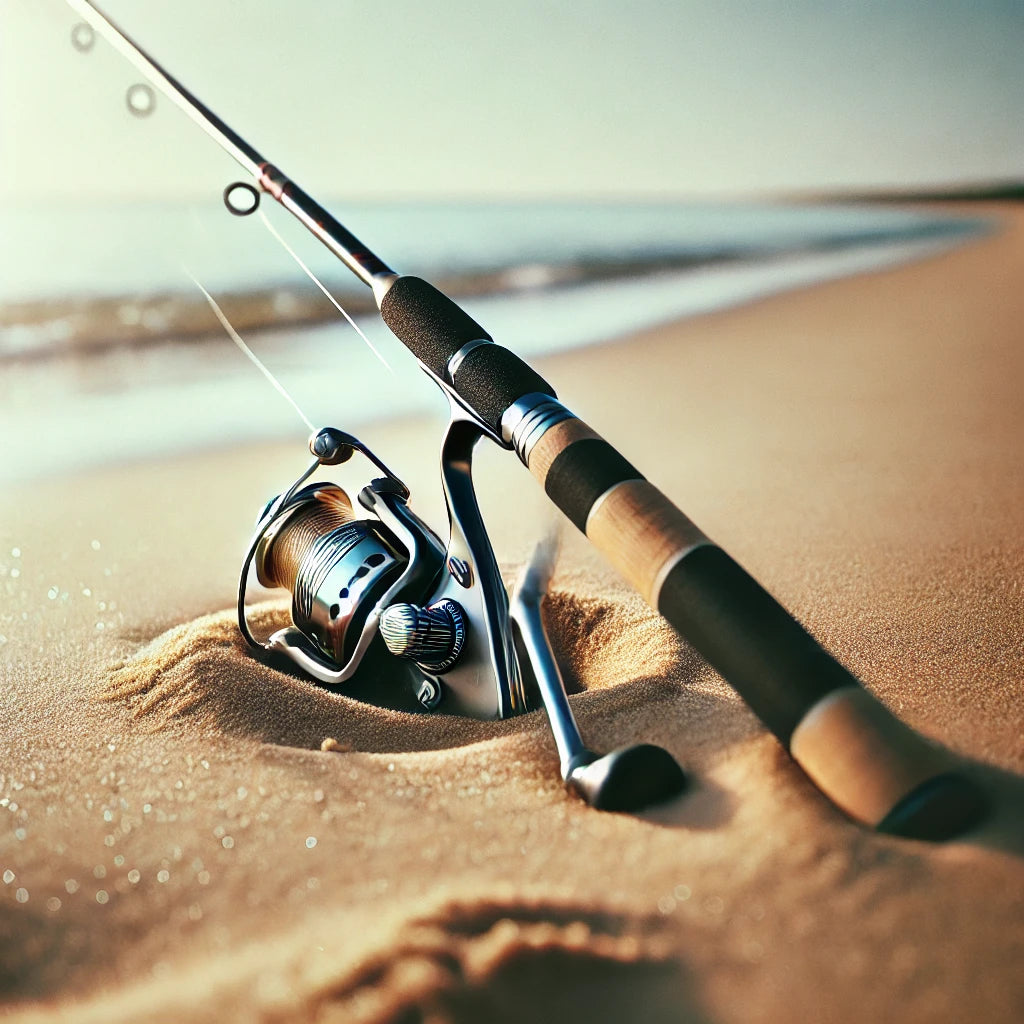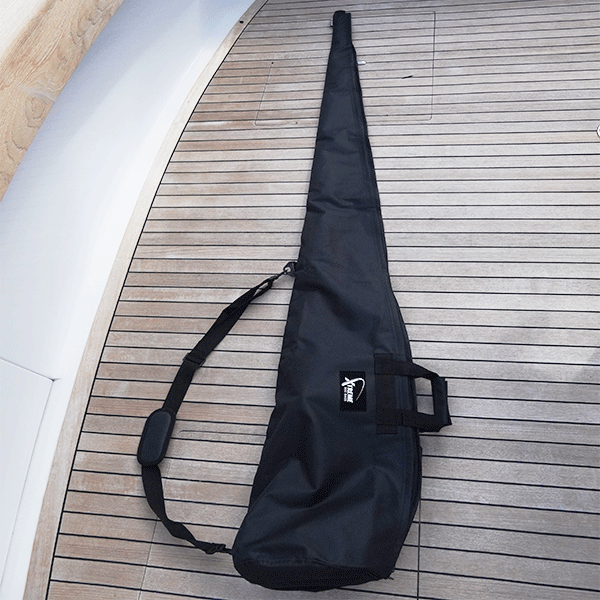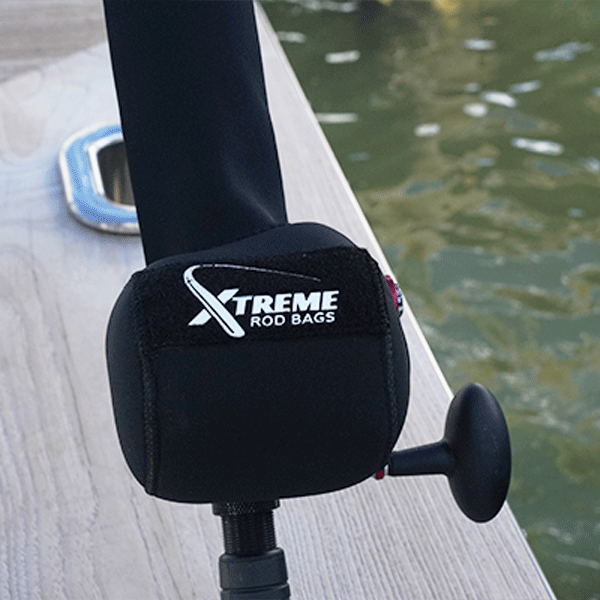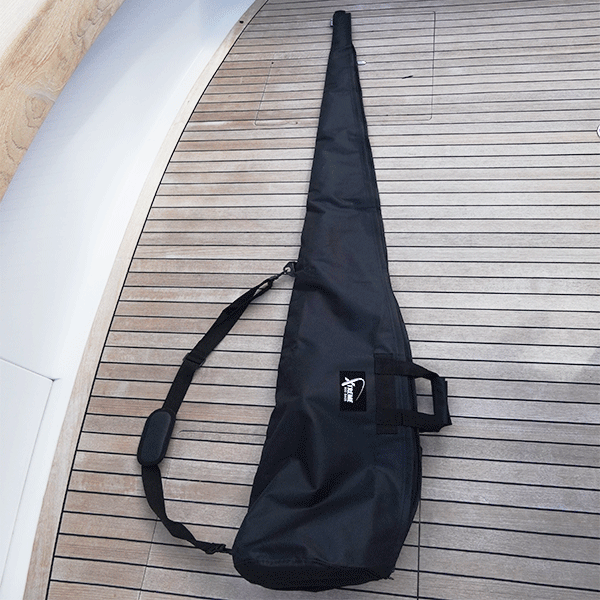
Whether you're an avid angler or a weekend fisherman, protecting your fishing gear is essential. One of the most overlooked pieces of equipment is the rod bag—a simple yet critical accessory that ensures your fishing rods remain in pristine condition. In this article, we will explore everything you need to know about rod bags, from their importance and types to how to choose the best one for your fishing needs. Let's dive in!
Table of Contents
- What Are Rod Bags?
- Why Are Rod Bags Important?
- Types of Rod Bags
- Soft Rod Bags
- Hard Rod Cases
- Rod Tubes
- Key Features to Look for in Rod Bags
- Material Durability
- Rod Capacity
- Size and Fit
- Protection Level
- How to Choose the Right Rod Bag for Your Fishing Style
- Freshwater vs. Saltwater Fishing
- Travel Requirements
- Top Benefits of Using a Rod Bag
- How to Maintain and Clean Your Rod Bag
- Best Rod Bags for Fly Fishing
- Top Rod Bags for Surf Fishing
- Multi-Rod Travel Cases: An Angler's Best Friend
- Rod Bag Accessories You Need
- The Difference Between Budget and Premium Rod Bags
- How to Properly Store Rods in a Bag
- Where to Buy High-Quality Rod Bags
- FAQs About Rod Bags
1. What Are Rod Bags?
A rod bag is a specially designed case or cover that helps anglers store and transport fishing rods. Whether made from soft fabric or hard plastic, these bags shield rods from damage, such as scratches, impact, or exposure to harsh weather conditions. Rod bags come in a variety of designs, some built for single rods and others for multiple rods, making it a versatile tool for fishing enthusiasts.
2. Why Are Rod Bags Important?
Fishing rods are an investment. They are often sensitive and prone to damage when handled improperly or exposed to external elements. Rod bags provide a layer of protection, extending the lifespan of your gear. They also make it easier to transport multiple rods securely, whether you're headed to your local fishing spot or traveling cross-country for a fishing trip.
Rod bags not only prevent your rods from breaking or bending but also help in avoiding tangles, ensuring that your gear remains organized and ready for your next angling adventure.
3. Types of Rod Bags
Soft Rod Bags
Soft rod bags are typically made from durable fabrics like polyester or nylon. They offer lightweight protection and are easy to carry, but they may not protect against high-impact damage. These bags are perfect for short trips or for anglers who prioritize portability over heavy-duty protection.
Hard Rod Cases
Hard rod cases, as the name suggests, provide a rigid, protective shell around your fishing rods. These cases are often made from plastic, PVC, or even aluminum. They are ideal for anglers who travel frequently or need extra protection for their gear.
Rod Tubes
Rod tubes are cylindrical, offering high-level protection with minimal space. These tubes are popular among fly fishermen and are great for compact storage or long-distance travel. They protect against both impact and environmental factors, such as rain or saltwater.
4. Key Features to Look for in Rod Bags
Choosing the right rod bag can be tricky with the vast number of options available. To simplify the decision, here are key features to consider:
Material Durability
Look for materials that can withstand the elements. Nylon and polyester are common for soft bags, while hard cases often use durable plastics or aluminum.
Rod Capacity
If you own multiple rods, opt for a bag that can accommodate several rods at once. Some bags are designed to hold up to 5 or 6 rods, making them ideal for competitive anglers or long trips.
Size and Fit
Make sure the bag fits your rod’s length and type. Fly fishing rods, for instance, require different bags than surf fishing rods. Always check the dimensions to ensure a snug fit.
Protection Level
Consider the type of fishing you do. If you fish in rugged terrains or travel often, a hard case might be better suited for your needs. Soft bags offer less impact protection but are more lightweight and portable.
5. How to Choose the Right Rod Bag for Your Fishing Style
Selecting a rod bag depends heavily on the type of fishing you enjoy.
Freshwater vs. Saltwater Fishing
Freshwater anglers can usually opt for softer bags, as they don't face the same level of corrosive elements. Saltwater fishing, on the other hand, often demands more durable, corrosion-resistant materials. Hard cases or heavily waterproofed soft bags are excellent for saltwater environments.
Travel Requirements
If you're traveling long distances or flying to your fishing destination, a hard rod case is the best option. These cases meet airline travel standards and offer significant protection against rough handling.
6. Top Benefits of Using a Rod Bag
The benefits of using a rod bag extend beyond protection. Some advantages include:
- Organization: Keep your fishing rods and gear tidy, preventing tangled lines and misplaced items.
- Convenience: Rod bags make transportation simpler, especially when carrying multiple rods.
- Weatherproofing: Protect your rods from rain, UV rays, and saltwater damage.
- Extended Gear Lifespan: By preventing wear and tear, a rod bag helps your fishing gear last longer.
7. How to Maintain and Clean Your Rod Bag
Proper maintenance will keep your rod bag in top condition. Here are a few tips to prolong its lifespan:
- Clean after every trip: Saltwater and dirt can degrade materials over time. Wipe down your rod bag with a damp cloth and allow it to dry thoroughly before storing.
- Check zippers: Ensure zippers remain rust-free and function smoothly by regularly cleaning and lubricating them.
- Store in a dry place: Always keep your rod bag in a cool, dry place to avoid mold or mildew growth.
8. Best Rod Bags for Fly Fishing
Fly fishing requires specialized rod bags that are usually lightweight and designed for compact rods. Look for features like padded interiors, moisture resistance, and portability.
9. Top Rod Bags for Surf Fishing
For surf fishing, you’ll need a rod bag that offers enhanced protection against saltwater, sand, and strong winds. Hard cases are ideal, but certain high-quality soft bags with water-resistant coatings can also do the job.
10. Multi-Rod Travel Cases: An Angler's Best Friend
Multi-rod travel cases allow you to transport several rods securely. These bags often feature padded dividers and heavy-duty zippers, making them ideal for anglers on the go.
11. Rod Bag Accessories You Need
Accessories like rod sleeves, padding, and desiccant packs can enhance your rod bag’s functionality. Rod sleeves add extra protection for individual rods, while desiccants prevent moisture buildup in hard cases.
12. The Difference Between Budget and Premium Rod Bags
While budget rod bags may suffice for casual anglers, premium options offer superior materials, protection, and longevity. Investing in a high-quality rod bag is a wise decision for those who fish frequently or own expensive gear.
13. How to Properly Store Rods in a Bag
Always ensure your rods are clean and dry before placing them in the bag. Use rod sleeves for extra protection and arrange them neatly to avoid tangling or unnecessary pressure.
14. Where to Buy High-Quality Rod Bags
Rod-bags.com is your go-to destination for a wide range of top-quality rod bags, catering to both amateur and professional anglers. Offering both soft and hard options, the site ensures you’ll find the perfect bag for your fishing needs.
15. FAQs About Rod Bags
Q1: Can I use a rod bag for air travel?
Yes, many rod bags, especially hard cases, are designed to meet airline travel standards.
Q2: What’s the best material for a rod bag?
It depends on your fishing style. For portability, nylon or polyester works well. For heavy-duty protection, opt for hard plastic or aluminum.
Q3: How do I clean a rod bag?
Wipe it down with a damp cloth and let it dry thoroughly. Avoid using harsh chemicals that can damage the material.
Q4: Can I fit multiple rods in one bag?
Yes, many rod bags are designed to accommodate several rods. Check the bag's capacity before purchasing.
Q5: Are rod bags waterproof?
Some rod bags are water-resistant, but hard cases generally offer better protection against water.
Q6: What size rod bag should I get?
Measure your rods and choose a bag that fits them comfortably. Always consider a bit of extra room for rod accessories.




